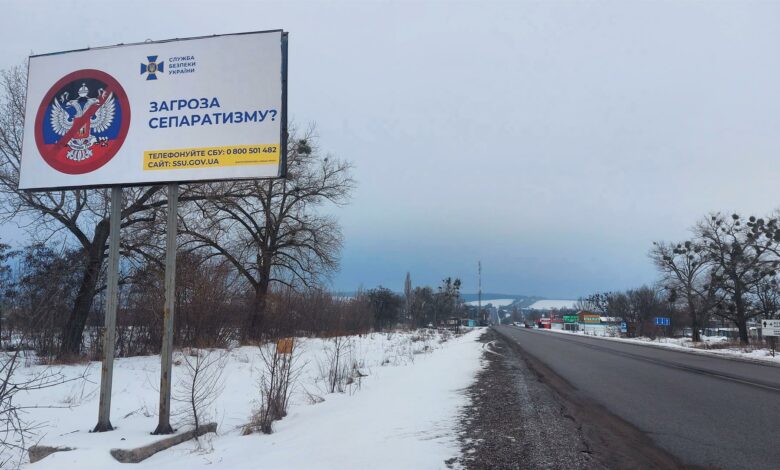Goptovka, the last Ukrainian frontier

Goptovka, Ukraine, Feb 5 (EFE).- Tension prevails at the Goptovka border checkpoint between Ukraine and Russia. The point could become the front line of combat under a potential Russian attack.
Some 200 meters from customs, a border guard armed with a Kalashnikov rifle controls the passage of cars, trucks and pedestrians going to Russia, without losing sight of those who arrive.
“I haven’t seen anything, no troops, no tanks on the other side,” a middle-aged man who has just set foot on Ukrainian territory tells Efe.
He seems to be more worried about reaching his destination than about the tension simmering as Russia has amassed over 100,000 soldiers on the other side of the border.
Vitali, who lives in the Goptovka village located a few kilometers from the border crossing, used to make a living by selling gasoline brought from Russia before the 2014 conflict broke out.
Before the conflict, no visa or passports were required to cross the border with nearly everyone in the region having relatives on both sides.
Many of them grew up speaking a mixture of languages called Surzhyk.
“My parents always spoke like that, and their surnames were Ukrainian even though they lived in Belgorod,” Mikhaíl Scherbak, a gray-haired taxi driver, told Efe.
But everything changed eight years ago with the Maidan revolution, the illegal Russian annexation of the Crimean peninsula and the Kremlin’s support for the armed uprising of the Donbas separatist militias.
The coronavirus pandemic has become an additional obstacle when crossing the border after the beefing up of sanitary measures.
Ukraine, which reports a record of over 43,000 daily cases, does not recognize the Sputnik V Russian vaccine, while Moscow does not recognize those administered in Ukraine.
All this has taken its toll on the surrounding towns and the entire Kharkiv region.
While the lines of cargo trucks waiting for their turn to cross the border may seem long, they are barely a third of what they used to be, Scherbak said.
The collapse of the railway system of the regional capital and the bankruptcy of important industries are some manifests of the dire situation.
“Kharkiv used to be an important railway junction that allowed the transit of goods to and from Russia, but now it has become a dead-end,” Ukrainian photojournalist, Sergey Kozlov, said. EFE
fss/ta/mp





